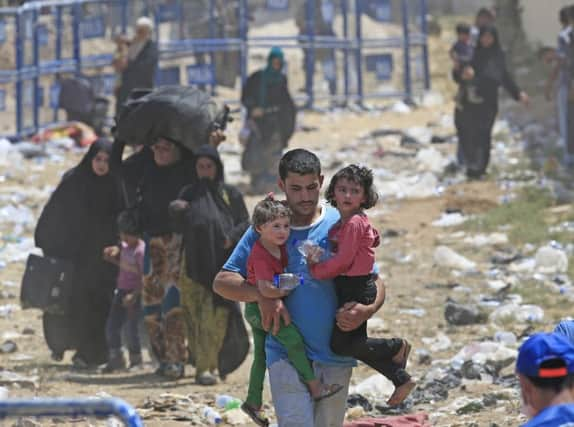Leaders: Only one strategy to counter terrorists


Drone strikes are still a highly controversial policy, the US effectively flying weapons of war over other countries while pilots remain thousands of miles away relying on highly advanced technology and intelligence to operate. Obviously civilian casualties are a real risk and the families of two Yemeni citizens killed in a US drone strike have launched a lawsuit in Washington DC, in a bid to use the courts to put a brake on the US attacks where politics has failed.
The strikes are a main weapon in the US policy of “decapitation” (although still not its only one, a US special forces team recently going deep inside Syrian territory to kill a senior figure within Islamic State).
Advertisement
Hide AdAdvertisement
Hide AdThe strategy states that by targeting the heads of terror organisations, it makes the organisations less able to operate and weakens the will and morale of those left. There is little evidence that this is an effective strategy.
One of the attributes it has going for it is the lack of any other to replace it with. It used to be thought that it was possible to follow the money, and if the rich financiers of terror were closed down or rendered unable to operate then the war against terror would be won, but so-called lone-wolf attacks by very small groups armed with cheap weapons, like knives and machetes or even the hugely abundant AK47s, means that large sums of money are no longer such a vital part of any planned terror strike.
But “decapitation” as a strategy can also have unintended consequences. When strong leaders are removed, it can harden the resolve of those left, and also lead to the emergence of more than one able successor.
It was the killing of Osama Bin Laden that led directly to the formation of Islamic State. Its leadership detached itself from al-Qaeda to get more radical in Syria and Iraq, saying it was remaining true to Bin Laden’s ideals.
It was weakened central leadership that led to the emergence of AQAP, one of al-Qaeda’s deadliest arms.
It is obvious that “decapitation” alone will not win the war on terror. With IS particularly now controlling vast swathes of territory, targeting training grounds is not effective. Choking off funding can also just be a part of a broader strategy.
While all these may have parts to play, the only strategy that can succeed in halting the growth of Islamic State is a strong international coalition including Muslim counties taking military action.
Strengths trumped by real weakness
Confidence and self-belief are certainly characteristics we want in our leaders. To be an effective leader in a mature democracy you need both of those. With that said, then, Donald Trump should be the ideal candidate for president of the United States of America, leader of the free world and commander in chief of the world’s greatest superpower.
Advertisement
Hide AdAdvertisement
Hide AdWell, he would if those were the only characteristics we need in leaders.
But we need more than just those two, and there is little evidence that Trump has any more to offer by the way of what the job needs.
Let us make no mistake, Mr Trump is a very successful businessman. He has made a lot of money and to do that he has had to be focused and direct. He knows what he wants and will pursue it with a singularity of purpose that will bulldoze through opposition.
In Scotland’s limited dealings with him, we have seen that strength of purpose, but we have also seen the side that denigrates his opponents, that forces court battle after court battle, that threatens to take his ball home if all does not go his way.
What we haven’t seen is willingness to listen, empathy, a greater understanding of others and an ability to see where fair compromise is the best way forward. These are what politicians – good, powerful politicians – need.
Trump’s aggressive manner ramps up every dispute he enters, and there are a lot of those. That is exactly the opposite of what the US – and the world – needs in a president. Let’s be thankful he’s not going to get it.